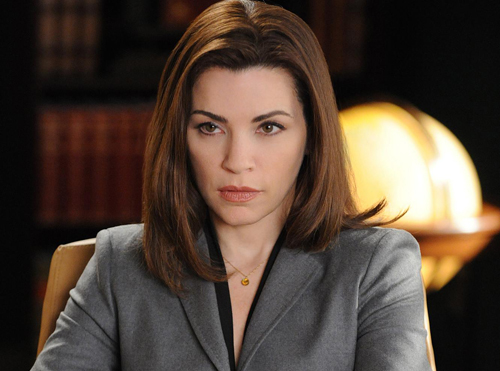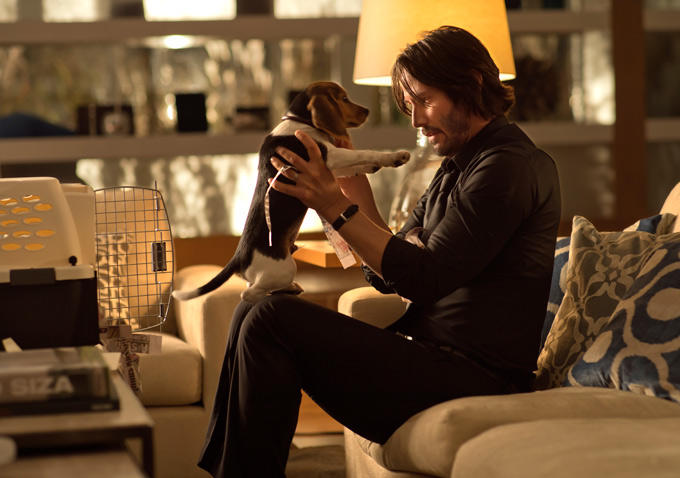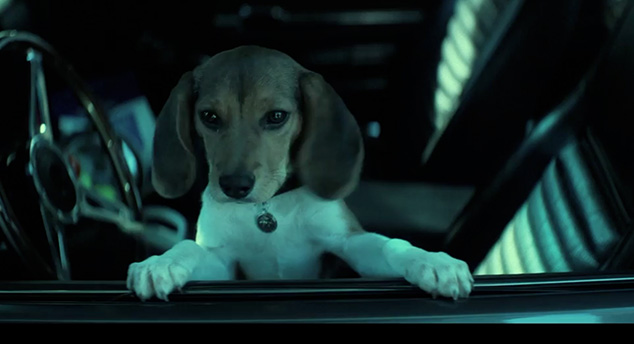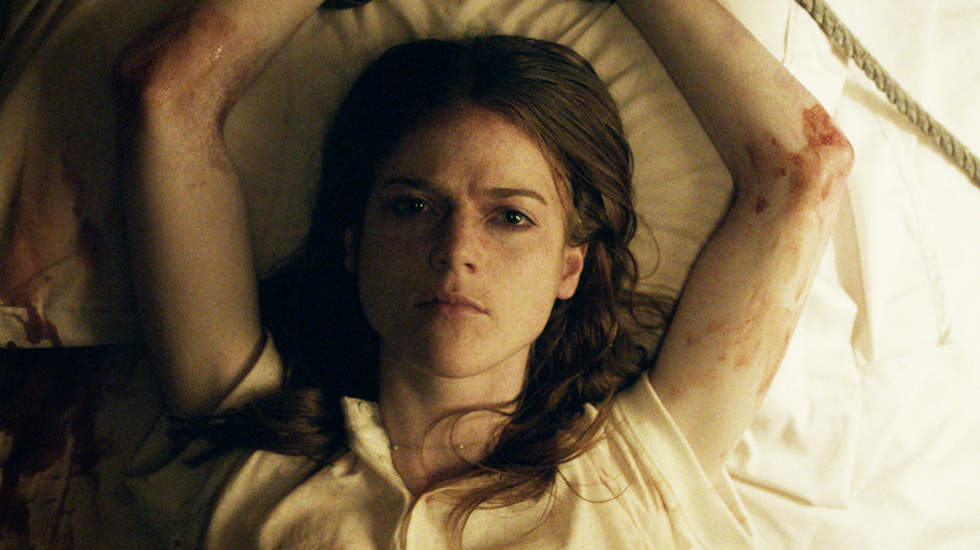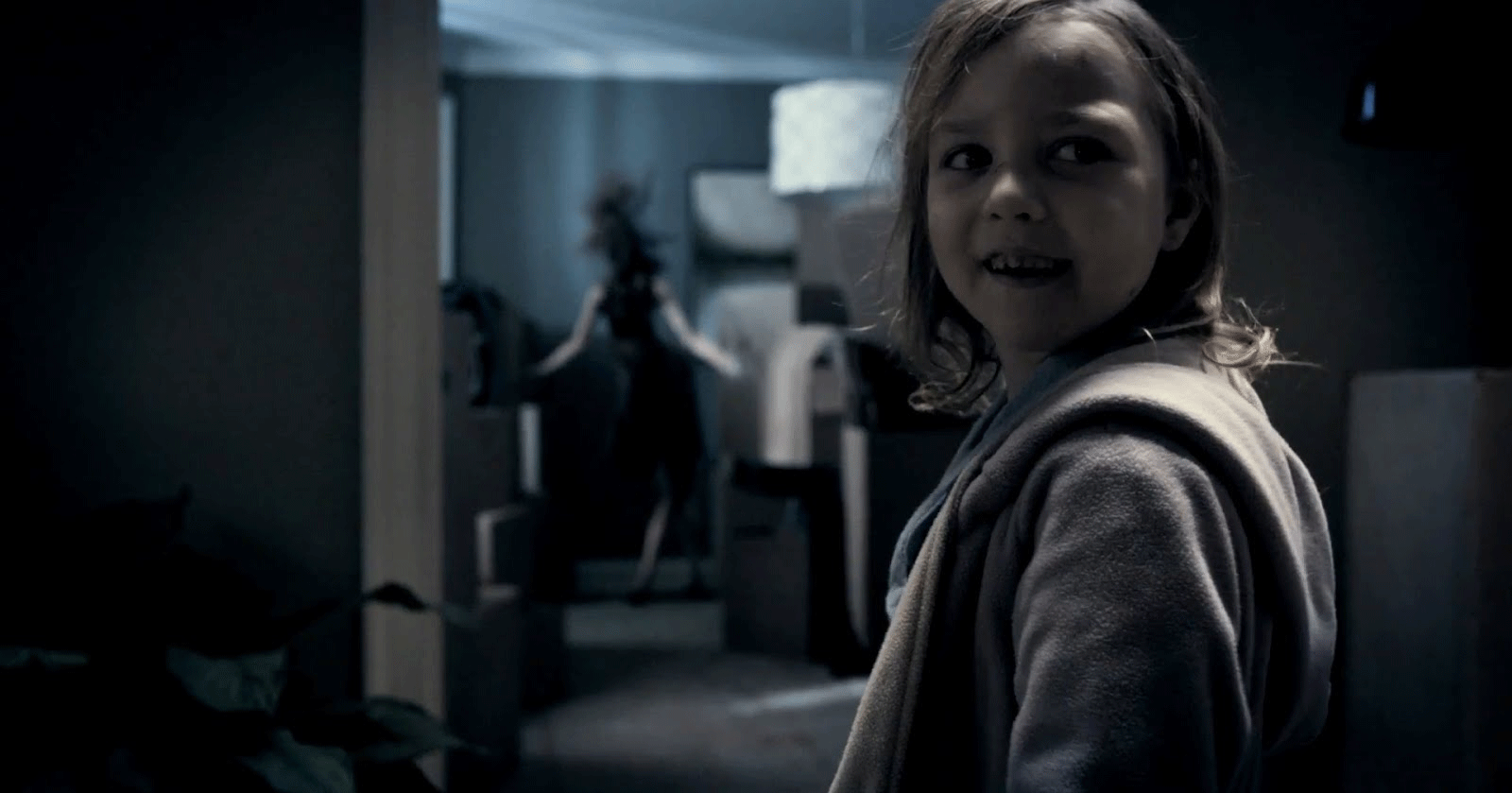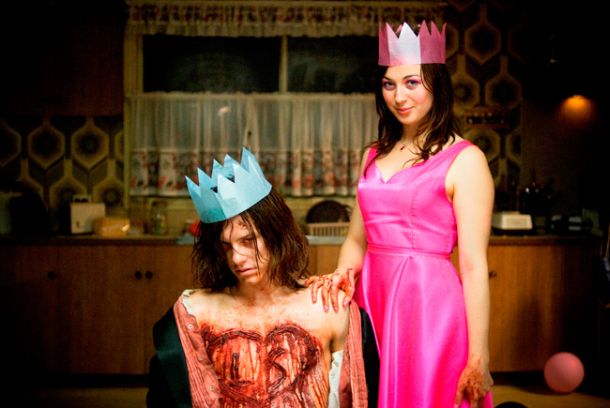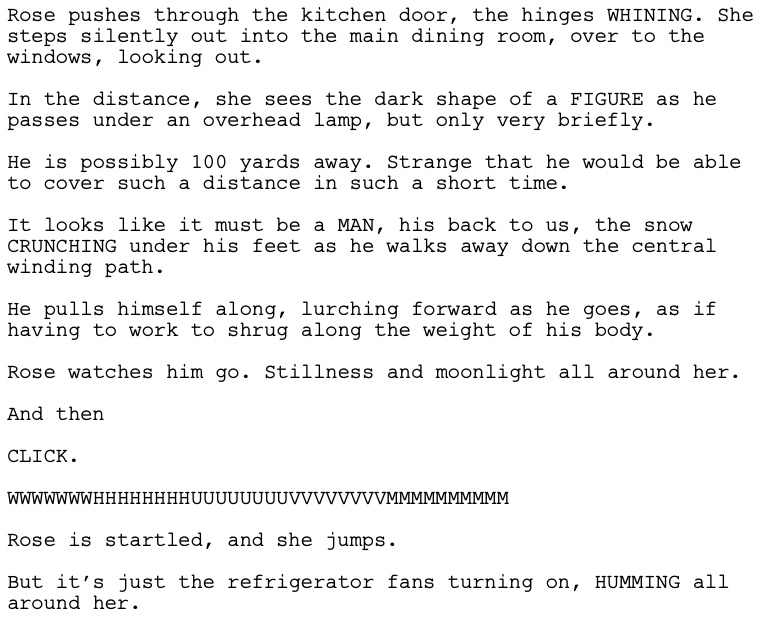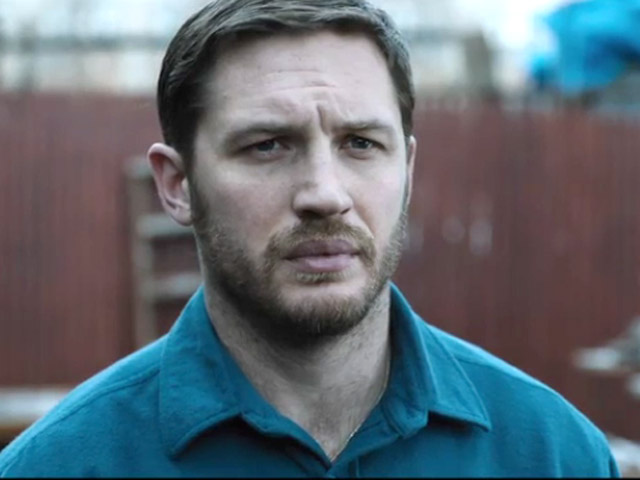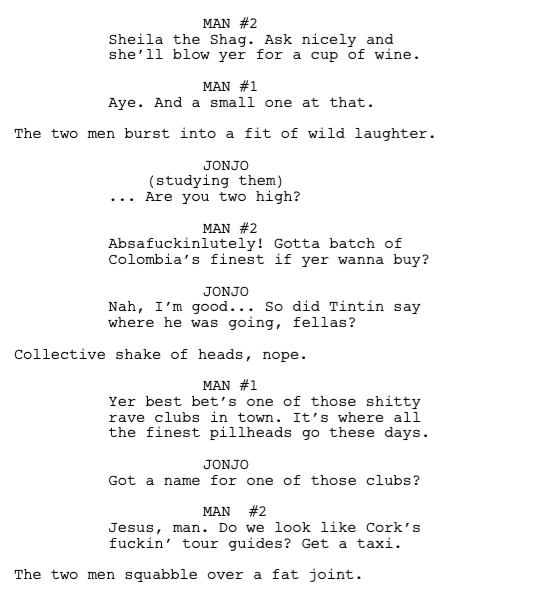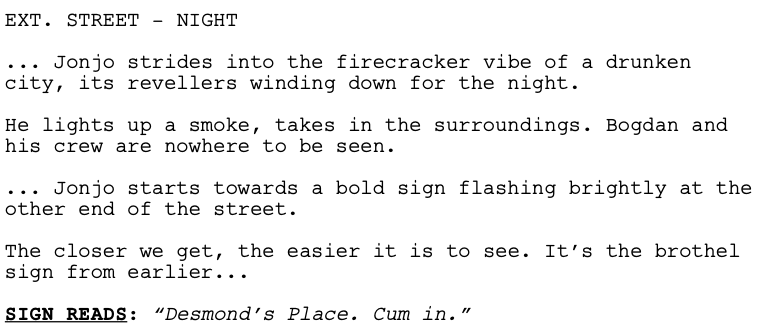Search Results for: F word
“You know the show’s demographic is 57 year old women, right?”
That’s what Miss Scriptshadow said to me when she found me watching my third episode of The Good Wife in a row. I tried to explain to her that I’d merely been tired of hearing how good the writing was on The Good Wife and I had to check it out for myself for research purposes. That was all. Strictly research.
But then I realized I wasn’t just lying to Miss Scriptshadow. I was lying to myself. I was a Good Wife addict. The show that I never thought I’d watch, much less enjoy, had become my favorite show along with The Walking Dead. How did this happen? The plight seemed implausible. I HATE these kinds of shows. “Ooh, are they gonna prove that the murderer’s shoe didn’t fit in time to win the case!???” I don’t care. I have something called intelligence which allows me to know that, yes, they will prove the shoe fits, and then afterwards we’ll learn that it was really THE WIFE who did it.
That’s what I was expecting to find when I started watching this TV version of crack. And in a few instances, I was right. But what I learned through this particular law procedural, is that while the individual cases that come about each episode are usually cliché, it’s the things that happen outside the cases that make the show good.
For those who don’t know what The Good Wife is about, it follows Alicia Florrick, the wife of prominent and popular State’s Attorney, Peter Florrick, after he’s involved in an ugly scandal, fixing cases through a complicated web of prostitution, prostitutes that he himself slept with. Peter goes to jail, and Alicia, who’s up until this point been the “good wife” and mother to her son and daughter, must finally do something with that law degree she secured forever ago in order to support her family.
Luckily, Alicia’s old law school boyfriend, Will Gardner, is now a partner at his own firm. He decides to take a chance on Alicia as a junior associate, something that raises a few eyebrows in the firm. Is Will bringing her in because she’s good? Or is Will bringing her in because he’s still in love with her? The series is populated with lots of other fun characters, like the cryptic private investigator, Kalinda, and the tries-too-hard first year associate Cary, and like any good show, is a joy to watch in that you never know what to expect. The Good Wife constantly surprises you.
You don’t really understand the power of a television show until you’ve seen it done right. And The Good Wife does pretty much everything right. Starting with its levels.
I admit that I’m completely making this vocabulary up because I don’t know the TV vernacular as well as I do features, but I’m calling it “The Level Approach.” The Good Wife taught me that there are three LEVELS of exploration in every episode. The first level is the case itself. We’ll call this the episode’s plot. While there will be other things going on, sometimes more important things, this level is the engine that drives the episode. The second level is what happens at work (in this case, the law firm). This includes all the interpersonal relationships that are occurring at the firm. For instance, Cary has a thing for Kalinda, who doesn’t like Cary. So when they work together, there’s an undercurrent of tension. Finally, there’s the home level. What happens to these people when they go home (their personal lives)? For the most part, this level follows the main character (in this case, Alicia) and her problems with her family – how her two kids are dealing with this. As well as her complicated relationship with her husband, who she still loves, but who has betrayed her.
Now when each of these levels is dealt with separately, they’re only moderately entertaining. It’s when they INTERWEAVE with one another that the show excels.
Let me give you an example. In the second episode of the series, a prostitute comes to the firm complaining to have been raped by the son of a rich Chicagoan. On its own, this is a pretty uninteresting case. But who’s put on the case? Alicia Florrick. Alicia’s husband, of course, was cheating on her with prostitutes. Now, she’s forced to defend one. Her home life is now clashing with her work life. You see how a ho-hum case/episode can all of a sudden become exciting?
As the season moves on, Alicia is hearing more and more that her husband, Peter, might have been set up by the new State’s Attorney, Glenn, who orchestrated her husband’s ouster in order to steal his job. Then one day, the firm gets a new client. It’s Glenn’s wife, who wants a divorce. And she wants Alicia to represent her. As Alicia looks into the divorce case, she comes across information that might help her husband’s case. Which is complicated, as she’s still not sure she even wants her husband out of jail. Once again, her home life is clashing with her work life.
And really, when you think about it, you don’t have to stop at three levels. Every show concept will be unique, allowing you to add a fourth, or even fifth level. You could argue that Peter’s storyline (trying to get out of jail and get his State’s Attorney job back) is the fourth level in The Good Wife, and the writers do an excellent job of integrating that storyline into the cases as well. For example, in one episode, the law firm needs a judge’s help. That judge happens to be a good friend of Peter’s. So they need to ask Peter to put a call in.
The great thing about The Good Wife is that they only include a choice if it adds more conflict to the show. Take the example above. It’s not as simple as the firm asking Peter to make a call. Their only connection to Peter is through Alicia. Will has to then ask Alicia if she’ll tap her husband’s connections. This makes Alicia question if she’s been hired for the right reasons. Is she hired because she has access to one of the most powerful men in the city? Or has she been hired because she’s genuinely good? Everything about this show is so intermixed and intermingled. There’s never a straightforward narrative to any of the cases.
Now Miss Scriptshadow argues that it’s all too soapy. Will liking Alicia. Prostitutes coming out with stories in the media. But I pointed out that The Walking Dead (her favorite show) is one of the most soapy shows out there, and really, all the best shows have soapy elements. You can’t NOT have love stories and betrayal and the occasional character getting pregnant. She says The Walking Dead is different cause there’s zombies. I’m not sure how to respond to that.
Another thing I talk a lot about on the site is “The Choice.” This is when you give your character two choices that are equally bad. It’s a fun place to put your character because the audience loves watching them squirm their way to a decision. The Good Wife is one of the best shows (or movies) I’ve ever seen at this. They must talk about it specifically in the writer’s room because they clearly try to include it at every opportunity.
Let me give you an example. In the fourth episode of the series, Peter’s lawyer, who’s trying to get Peter out of jail, wants Alicia to testify that Peter made untruthful statements not because he was hiding illegal activity, but rather to hide his infidelity from his wife. In other words, Alicia is being asked to help her husband by confirming an action that kept her in the dark about his cheating. If she helps him, she basically endorses this behavior. If not, her husband stays in jail. Complicating matters is that her kids are desperate to have their father home.
The best of these choices are always ones where if you put yourself in the character’s shoes, you wouldn’t know what to do. If, however, they’re “paper decisions,” decisions that look fine on paper but, really, everyone knows what the best choice is, then you’re not doing your job.
I didn’t even get into the great character-writing here. I often hear the tip, “If you cover up all the characters’ names, you should be able to know who’s talking just by their dialogue.” This certainly sounds good, but it’s rarely 100% applicable. There are always going to be characters who sound neutral enough that their dialogue can be confused for others’. But The Good Wife is the one example where you really see this. The selfish and direct Kalinda. The uber-confident Peter. The motherly Alicia. The try-hard Cary. The stately Alicia (one of the partners). The calm and collect Will. I mean you really could cover these characters’ names and know who’s talking.
The only question I have for this show is, can it keep it up? I’m on Episode 18 of the first season. I understand they’re on their 6th season now at 23 episodes a pop. Does it devolve into Gray’s Anatomy territory where, by season 2, they’re doing Prom Hospital? Or are they able to keep up this amazing level of quality? Let me know so I can either raise or lower my expectations.
And finally, I need to know what club I’m in now. All these shows/movies have cool names for their watchers. Twihards. Browncoats. What am I now? Am I a Goodwifer?
Goodwifers unite!
Genre: Action
Premise: When a Russian gang kills a former hitman’s dog, he decides to take all of them down in an act of revenge.
About: John Wick just came out this weekend, finishing in second place at the box office with 15 million dollars. It could not overcome a major horror release (Ouija) a week before Halloween. What’s unique about this film is that it comes from first time directors David Leitch and Chad Stahelski, who were former stuntmen directors for more films than you can count (including 300, The Bourne Legacy, and Matrix: Revolutions). Needless to say, action was a priority over all else in the film. This is writer Derek Kolstad’s first big writing credit, unless you count the two movies he wrote for Dolph Lundgren, one of which is said not to contain a single discernible word from Lundgren.
Writer: Derek Kolstad
Details: 100 minutes
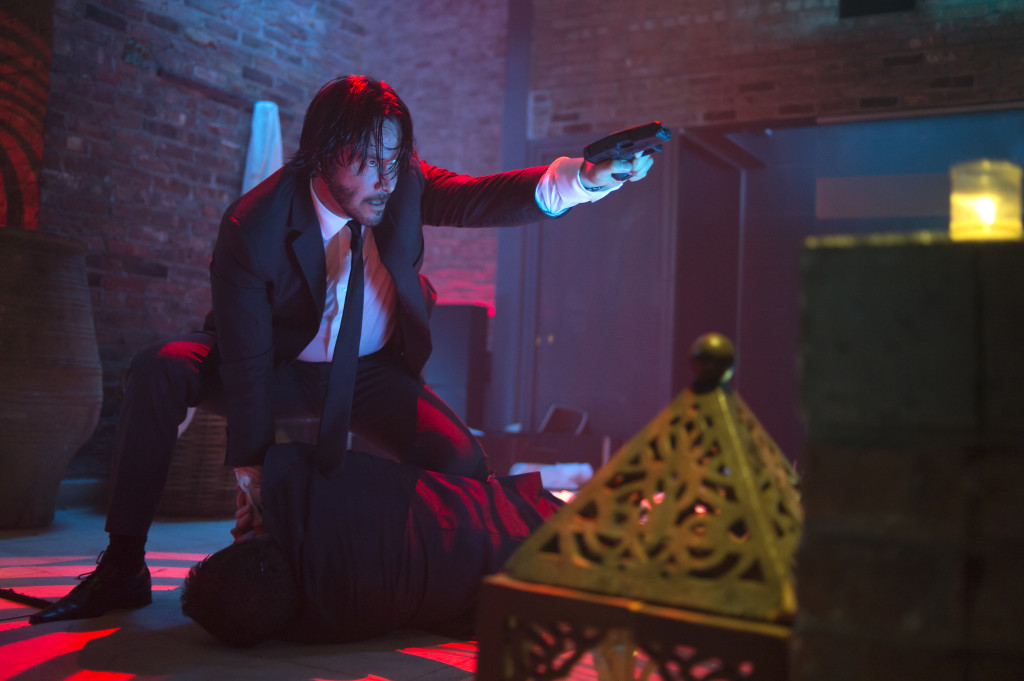 John Wick 12 hours after his dog was killed.
John Wick 12 hours after his dog was killed.
If there is an argument for the non-screenplay, John Wick might be it. This is an unapologetic action revenge flick with nothing going for it other than a good guy, a lot of bad guys and a kitchen full of bullet sandwiches. And you know what? It’s all the more wonderful for it. This film embraced what it was and WENT for it.
But don’t be fooled. John Wick has a little more screenplay panache than first meets the eye. I mean, you’re not going to get 86% on Rotten Tomatoes as an ACTION movie and not have some checks in the screenplay department. So we’ll get into that in a second. But first, for those of you who haven’t seen the movie, let’s find out how John Wick’s dog died.
John Wick is a normal guy, if you consider living with Keanu Reeves looks and a home right off the cover of Architectural Digest “normal.” Things are going well until the love of his life, his dear wife, gets cancer and DIES! Spoiler alert! Afterwards, John gets a package in the mail. It’s a present from his dead wife, to be delivered after she’s passed away. The present? The cutest freaking puppy in the entire universe! Awww times a trillion.
John loves this darn puppy. They walk around together, sleep together, eat cereal together. But then one day, when John goes to fill his 69 Chevy up with gas, a Russian punk takes a liking to his wheels and asks if he can buy the car. John says it’s not for sale, IN RUSSIAN, which makes our Russian baddie grumble extensively.
It isn’t surprising then when, that night, the Russians invade John’s house, beat him to a pulp, steal his car, and, oh yeah, KILL HIS DOG (luckily, this happens from John’s blurry point of view – so we don’t partake in the gory details).
The Russian who instigated this realizes soon afterwards that he made a major mistake. His Russian kingpin father tells him that the man whose dog he just killed… was John Wick. The greatest hitman ever. In fact, John Wick used to work for him, and was the main reason he rose to prominence. “So what is he, The Bogeyman?” the Russian son asks. “No. He’s the guy who KILLS the Bogeymans.” OHHHHHH.
John Wick then takes a sledgehammer to his basement floor, under which are buried all his old hitman toys, which seems a little dramatic (couldn’t he just put them under the bed?). He then checks into a special hotel downtown that caters exclusively to hitmen, and plans his revenge. Revenge that will require killing a lot of people with Russian accents.
So here’s the thing with John Wick. It’s both straight forward and not so straight forward. Even though there are clichés here (Russian bad guys for the 634,783rd time), the film does enough differently to make the journey fresh. And that’s what you’re always trying to do as a screenwriter. You’re never going to be completely original. But you can try and write ENOUGH original to outweigh the unoriginal.
A great way to do this is to introduce an overarching original element. By doing so, you can use it to spurn numerous “sub-elements” that are also original. So the big “original” thing in John Wick is the Continental, the hotel downtown that caters exclusively to hitmen. There are rules here. No one is allowed to kill you here. You are given special attention and special treats as a hitman.
This one choice birthed a number of sub-choices. John is supposed to be safe here. But the Russian Mob Boss doubles the price on his head (from 2 million to 4 million) so that hitmen will attack him inside the Continental, a huge no-no. Also, when you’ve left someone for dead in the hallway of the Continental and someone comes out of their room, they don’t scream and call the police. They nod and say, “Hey John. Didn’t know you were back,” and let you go about your business. There’s a unique currency used in this world (special gold coins). And even a hotel manager who enforces the rules at all times.
This is really what helped set John Wick apart from the other action movies. I heard one interview liken it to a hitman’s Harry Potter – this special underground world where hitmen reside. And I liked that analogy. It really does feel that way. And that choice was enough to spurn several other unique choices. I don’t think I need to tell you this since I always do. But PLEASE! Take the extra time, especially when you’re writing in such a well-known genre, to find some original ideas for the story. It’s the ONLY way your script has a chance.
But there were some screenwriting things that bothered me. First, everybody knows that “saving the cat” or “kicking the dog,” are quick and dirty ways to make you either love the hero or hate the villain. But they’re not meant to be taken literally. I never thought I’d see the moment where a writer would literally have his villain kick the dog to get us to hate him.
But it seems like it actually worked. I couldn’t possibly judge the choice myself because I was so hyper-aware of it being used to manipulate the audience. But the audience fell for it. As you know, it’s the impetus for the entire movie. John Wick kills all these guys because the Russians kill his dog. So if people are rooting for that at the end, it means they bought into the motivation.
For those of you who saw the movie, can you tell me if this worked on you? Were you aware of the manipulation? Was it too on-the-nose? Did that matter? I’m just curious how people didn’t see this as the most overt attempt at gaining hero sympathy… ever!
The other problem with John Wick was the second half of the script. The movie peaked with this beautifully crafted bath house invasion by John Wick set to this ethereal melodic pop song. But after that, the movie started running out of ideas. The hotel was now in the rearview mirror, and the writer didn’t seem to have anything fun or original to replace it.
Early on I was thinking, “You know how I know this is good. It’s the first action film I’ve seen in forever where we haven’t ended up in an industrial area.” Those industrial areas are beautiful to shoot in and give directors lots of options, but they all look the same. They make your action film the same as every other action film. The fact that these guys had managed to avoid that told me they were actually thinking through their choices.
 John Wick’s dog out of make-up.
John Wick’s dog out of make-up.
Then, after mentally lauding the film for this choice, where does the climax end up happening? In a giant industrial area.
Nooooooooooo!
It signified the reality here, which is that our writers and filmmakers ran out of juice. They were okay with the status quo with their ending. If they would’ve figured out how to make that ending unique? John Wick could’ve been a classic.
I still like it! Don’t get me wrong. But I almost loved this. I wanted to love it.
All I ask is that in the sequel, give John Wick a possum instead of a dog. Or when John Wick comes out on DVD, show us that the puppy playing the part of John Wick’s dog is still alive in the credits sequence. Killing puppies, man. It’s too much.
[ ] what the hell did I just watch?
[ ] wasn’t for me
[xx] worth the price of admission
[ ] impressive
[ ] genius
What I learned: John Wick is a classic example of first-half favoritism! It is a condition writers have in which they spend the bulk of their focus on the first half of the script. They don’t realize that 9 out of 10 times, when they go into their script to fix or work on something, they’re focusing on the first half (they do this whether they know it or not since the first half is closer to the top of the document, which is often where you open it). For this reason, the second half of your screenplay gets the short stick. So here’s a trick to avoid that. Instead of always opening your script on the first page and going down, open up the bottom of your script and go up. Work on those bottom scenes just as much as you do the top ones. Otherwise, there will be a perceptible quality drop as your script goes on.
What I learned: Just say NO to industrial locations in your action script! In your next action script, I implore you NOT to use any industrial locations. The entire thing must avoid all industrial areas, including the insides of warehouses! Especially the scene where our hero is captured and wakes up tied to a chair in a warehouse. Give us something new instead!
Horror has a certain power over me that I can’t explain. So primal is my need to be scared that I will watch every studio horror film released. It’s why I went to see Annabelle. It’s why I’m going to see Ouija this weekend. Do I think Ouija is going to be a good film? Hmmm. Will Renee Zellweger ever look like herself again? The answer to both questions is, of course, no. But if I can get just a couple of scares out of the viewing, I’ll be happy.
Having said that, deep down, I’m always hoping that this is going to be “the one,” that rare horror movie that doesn’t just titillate, but resonates. After reading the awesome “February” yesterday, I asked myself, “What is it that makes a good horror script?” How do you achieve that rare feat of going beyond the scares and giving the reader a fully-rounded experience, like how one feels after watching “The Exorcist” or “The Sixth Sense?”
I don’t know. But looking back at the horror films/shows/scripts I’ve liked recently (The Walking Dead, Mama, Honeymoon) and comparing them to the ones I hated (Annabelle, Oculus), there do seem to be some consistent threads in each. So I wanted to highlight those so you horror writers can give this thing a proper go. This shouldn’t be considered a final list. I’m far from a horror aficionado. But these should give you a baseline on how to get horror right.
Go in with higher expectations – One of the problems plaguing horror is it’s the genre with the lowest expectations. People see horror mostly as a vehicle to throw cheap scares and gore at the screen. Writers pick up on this and, as a result, set the bar low for themselves. Once you’ve done this, you’ve basically guaranteed your script will be bad. Treat horror just like you would a drama. Aim high and deep. I don’t care if you’re “only” writing a slasher movie. Try to make it the best slasher movie ever. There are few things as depressing as reading a lazily written horror script.
Deep characters – Remember this simple rule. If we don’t care about the characters (love’em or hate’em), we won’t care what happens when they’re put in danger. You cannot illicit fear from apathy. The reader must have a strong feeling about the characters one way or the other. So before you write your horror script, spend a LOT of time building your characters. Figure out their backstories, their fears, their flaws, their broken relationships. What is it they need to overcome in this journey? The more you build into your character, the more likely we’ll care about them.
Tie the scares to the characters – The horror and the scares in your screenplay should not be mutually exclusive. They should be designed around one another. In other words, try to connect your character’s fear to the horror at hand. In Mama, the step-mother’s fear is love, is getting close to these children. The scares in the movie then, surround this ghost mother who wants the girls back. The step-mother will have to learn to love the girls in order to save them. The closer you can connect the scares and the character’s own issues, the more impact the scares will have.
Original scares – Cliché scares are one of the most abused practices in horror writing. And this goes back to the first tip. Expectations need to be higher. If you’ve seen the scare before, DON’T USE IT. Or, at the very least, find a way to update it. One of the things that really annoyed me about Annabelle was the old-timey record player that kept turning on. Give. Me. A break. This is pure laziness. The Walking Dead is really good at spinning old cliches. We’ve all seen the scene where our characters have to pick up supplies at the supermarket but zombies are lurking about. Well, two seasons ago, they had a scene where the ceiling crashed in and all the zombies on the roof dropped down, trapping our heroes. Or this season, they had a scene where they had to get the food in a flooded storage basement, adding a unique challenge (walking in waste-high water) and type of zombie (a “floatie”). It’s never easy to sit down and challenge yourself for hours to come up with something new and original. You feel like you should be writing instead, and that you’re wasting time. But when you put in that extra effort and DO find an original scare or a new spin on an old scare, it makes your script so much better.
Be truthful – Don’t force illogical truths into your story just to get scares. When you do that, you’re being dishonest and bending the rules of reality to fit your plot. Instead, you should always try and be truthful, to offer reality. The more realistic the world you create is, the more we’re going to suspend our disbelief. One of the biggest problems with Annabelle was that the doll was the creepiest fucking doll in the universe. It looked like the picture-perfect version of a what a movie possessed doll would look like (and nothing like the actual doll it was based on). If that was it, I’d say fine. But where you’re being dishonest is having the mother character want it in the first place. Who in their right mind would want a doll like this? “Hey hubby? Can you grab me the creepiest fucking doll you can find for my collection?” Yeah right. There was nothing truthful about this plot point, and if you lie like this to the audience too many times, they call you on your bullshit and check out.
Atmosphere – You saw me talking about this yesterday with “February.” Horror is about atmosphere. It’s never just about walking into a room. It’s about the mood in the room. It’s about what’s creating that mood. Are the heating pipes banging obnoxiously behind the walls? Are there ice crystals forming on the window due to the -12 degree temperatures outside? Is your hero scratching at that annoying rash on his arm that won’t go away? Don’t be afraid to show those dead flakes of skin falling to the ground either. Atmosphere can be your best friend in a horror script when done right.
Loss of control – One of the scariest feelings for most people is a complete loss of control. Prey on this fear. As your story maneuvers through its plot, your characters should have less and less control over the situation. And at some point, they should have no control at all. They should feel completely helpless. Look at movies like The Exorcist, Human Centipede, and the little known Aussie film, The Loved Ones. Our fear is based almost exclusively on the helplessness of the main characters.
Build – Horror movies never seem to work when you jump into the scares right away. They need to be groomed and raised. They need to grow up over the course of the film. In other words, you want to BUILD UP to the scares. Look at Paranormal Activity, one of the most successful horror films of all time. That movie goes about three-quarters of its running time before a genuine scare occurs. Before that, it’s mainly a series of small building scares. As a general rule, try to design the first 60-70% of your movie as creepy and the last 30-40% as scary.
The prelude to the scare is often more scary than the scare itself (aka “Milkage”) – A good solid scare is wonderful. But if that’s all there is, you’ve entertained your audience for all of one second. The real key to scaring is chronicling what happens BEFORE the scare. That’s where the gold is, as you can draw the feeling of fear out. As such, you should be designing scares that have a great lead-up, a period of “milkage” if you will. One of my favorite script scares is still in the original draft of The Conjuring, which they ended up cutting. In it, our main character is inside the wall crawlspace, and has found a hole that goes into the basement. There’s a rope coming out of the hole. She starts pulling it. And pulling it. And pulling it. Our imagination is so wrapped up in what’s at the end of that rope, we don’t realize that it’s the prelude to this reveal that’s really scaring us. Of course, a great reveal at the end doesn’t hurt either (in this case, the noose around the witch’s head).
An impending sense of doom – We should feel like bad things are coming for our characters in the future. This should stress us out. We should never feel comfortable in a horror film, like things are going to be okay. We should always feel like it’s going to get worse, that doom is just around the corner.
Plenty of you out there eat, sleep, and breathe horror. And I’m interested to hear your thoughts on my list. Beyond what I’ve noted, what do you think makes a good horror film? Share your tips with the rest of us.
Genre: Horror
Premise: A non-traditional horror tale centering around three young women at a girl’s boarding school.
About: “February” made the 2012 Blood List, but the more interesting story is who wrote it. Now I didn’t know this before I read the script (I try to research the screenplay after I read it so I don’t go in with any preconceived notions), but the script was written by Osgood Perkins. Does that name sound familiar? It should. It comes from some prime horror stock. That’s right. Osgood is the son of Anthony Perkins, who played Norman Bates in Psycho. Now before you assume he got this far through nepotism, you might want to read the script and then my review.
Writer: Osgood Perkins
Details: 111 pages – June 2012 Draft
 Halloween Madness at Scriptshadow continues!
Halloween Madness at Scriptshadow continues!
In the casting profession, you’ll often hear casting directors talk about going through hundreds of auditions in order to get to “the one,” that one actor who makes everyone in the room sit up and pay attention. They talk about noticing that “special something” in the actor, an indescribable secret sauce that you can’t quantify.
Every once in awhile, I’m lucky enough to have the same experience with reading screenplays. You see, the reason that having a unique voice is so often touted as the key to breaking in, is because so much of what we read as readers is the same. It’s written the same, it’s structured the same, it’s imagined the same. So if you find something that doesn’t feel like the rest, you’re immediately drawn in.
I liked Perkins’ writing here so much that I’m going to implore you to find the script and read it yourself before you read my review (plenty of people should have the script in the comments). The beauty of this script is in the way that it grows and surprises you. Reading plot points beforehand is going to take away from that experience. With that warning, let us begin.
“February” is an aptly titled script as the word is meant to convey a feeling. The cold empty air of a February morning. It’s a common practice in Perkins’ writing. February is 75% atmosphere, and the best script I’ve ever read at using atmosphere to engage the reader.
The story starts out at The Bramford School For Girls, on the week the parents are taking their kids away for the weekend. 17 year old Rose, however, informs the headmaster that she miscommunicated the day to her parents, and will therefore have to stay at the school an extra night.
We quickly find out Rose is a little con girl. She orchestrated this hole in her schedule so she could spend the night with her boyfriend. But her plans are thrown into disarray when the headmaster assigns Rose to watch over 13 year old Kat, another girl whose parents didn’t show up.
Kat is a weird kid. She’s plagued with that “something’s off” look in her eyes. You can routinely expect a 1-2 second delay in every response she gives. But Rose could care less. She’s all about hanging out with her boyfriend, and leaves Kat at the empty school to fend for herself.
In the meantime, we cut to a plane flying into Providence, and meet another strange character, the 20 year old, Joan. Joan looks even more out of it than Kat. What’s going on here? Is there some sort of virus spreading through the country making women lose their shit? We’re not sure. All we know is that Joan’s surprised to find a hospital bracelet on her wrist. How did it get there? And how come she doesn’t know?
When she lands, Joan heads out of the empty airport into the beginnings of a winter storm. A seemingly sweet married couple in their 50s spot her. When they hear she’s going to the same town they are, they offer her a ride. Unsure at first, she eventually agrees.
Back at the Girl’s School, Rose comes back from her date, only to find Kat missing. She sneaks around the campus looking for her, eventually finding her in the most unlikely of places. It is a place that will set the stage for a shocking turn of events which will bring Rose, Kat, and Joan together in a way we never could’ve expected.
I’ve mentioned this before, but when I really like a script, it’s hard for me to break it down. I’m so caught up in the story, I’m not paying attention to a lot of the technical aspects. This is the ideal scenario. You want your story to be so compelling that the reader never has a chance to understand why it’s working. They’re too busy flipping through the pages, wanting to find out what happens next.
This it the most atmospheric script I’ve ever read. Atmosphere is essential to horror screenplays. You don’t have the music score doing the work for you as your characters walk into danger, so it’s what you describe and how you describe it that creates the suspense and the tension to pull your reader in. Here’s an example from “February,” a quick excerpt from a scene in the cafeteria.
Notice the sounds and images here. The kitchen door, whining. The man’s footsteps, crunching. The focus on how the man walks, having to pull his weight along. The sound of the refrigerator fan humming. Perkins pays attention to all the little details surrounding the moment in order to bring the moment itself to life. Now you have to be careful about this. You don’t want to overwrite. But readers will give you a little more slack when you’re great with description, as Perkins obviously is.
But what really pulled me in here was the puzzle. The screenplay is set up sort of like Pulp Fiction, where you’re bouncing around from character to character, trying to figure out how it all fits together. I mean when we jumped to Joan for the first time on the plane 40 pages into the script, I threw up my hands and was like, “Where the hell is this going?” The last thing I expected was to be leaving the boarding school, and my brain had to work overtime to figure out how those two threads were going to come together. I loved it.
Perkins also has an amazing ability to make even the most minute moments mysterious. For example, this is how Joan was introduced: “She’s roughly 20 but looks older, some of the brilliance having gone from her eyes.” (line space) “If you asked for her name, she’d tell you it’s JOAN.” You see what I mean. Even a simple character introduction comes with a mystery! Her name is Joan. Or maybe it isn’t. How could something as simple as a name come with such uncertainty??
Now this script isn’t going to be for everyone. Some are going to find it slow. Perkins makes you read for a long time before he rewards you with any payoffs, and his focus on description and ambiance is so heavy at times that it might turn people off. I can already hear some of you, while reading it, saying, “Get to the point already.”
But I loved it. There’s something inherently suspenseful about his style, allowing even the most mundane scenes to come alive. For example, when the ultra-fragile Joan is having breakfast with Bill (the husband character who gave her a ride), we’re convinced that he’s angling for something here, that he has a possibly evil agenda. Which makes us worried for Joan. But at the same time, we haven’t figured Joan out either (what was up with that hospital bracelet??), and a part of us is wondering if she’s the one we have to worry about. I rarely feel so much energy underneath a scene that was, basically, two people talking over a meal.
But the kicker of why this horror script is so much better than everything else out there is the writer’s choices. As I like to say (or at least, am about to) “Voice is choice.” (major spoiler follows) Had you given 100 writers the premise of, “Write about a psychopathic 13 year old killer,” 99 of them would’ve written a straight-forward slasher type script following a 13 year old girl going from victim to victim. “February” is anything but that. It deftly weaves three giant puzzle pieces together into one of the more satisfying (and creepy) revelations I’ve ever come across. Remember this always, guys. When you come up with an idea, sit down and think about EVERY ANGLE you can tell that idea from. Don’t just hop into the first approach that comes to mind because that’s probably the most boring approach.
“February” reminded me a lot of Wentworth Miller’s writing, but I think Perkins is even better. If I were a horror screenwriter, I would say that these two guys are the ones you want to be studying right now. They’re the ones with the most interesting vision. Even though I thought Interstate 5 was decent, the writing here really shows how big the gap is between average and great. You really see how good writing can elevate something. What a script!
[ ] what the hell did I just read?
[ ] wasn’t for me
[ ] worth the read
[x] impressive
[ ] genius
What I learned: If you love writing description but you’re tired of the screenwriting Gestapo telling you that there’s no place for excessive description in screenwriting, here’s a workaround for you: Hide your description INSIDE OF ACTION. That way, the description doesn’t sit out on its own and bore the reader. For example, let’s say you want to describe the kitchen during a night scene, that it has “slivers of moonlight” that “shine off of hanging pots.” Don’t start your scene with that description. Wait until there’s some action in the scene and then squeeze the description inside of the action, like Perkins does. Here he is describing Rose in the kitchen: “She steps deeper into the dark room, guiding herself by the slivers of moonlight that shine off of hanging pots and pans and along the sharp edges of metal counter tops.”
Get Your Script Reviewed On Scriptshadow!: To submit your script for an Amateur Review, send in a PDF of your script, along with the title, genre, logline, and finally, something interesting about yourself and/or your script that you’d like us to post along with the script if reviewed. Use my submission address please: Carsonreeves3@gmail.com. Remember that your script will be posted. If you’re nervous about the effects of a bad review, feel free to use an alias name and/or title. It’s a good idea to resubmit every couple of weeks so your submission stays near the top.
Genre: Crime-Thriller
Premise (from writer): Over the course of one night, a reformed father must step back into his murky past to find his criminal brother who is the only suitable donor for his dying son…
Why You Should Read (from writer): I think it was Tarantino that said he’d been staring through the window at the industry for so long prior to Reservoir Dogs’ success that it felt normal for him to be on the outside now. At times I very much feel the same. I’ve had the agents, the managers, the lawyers and done the water bottle tour too. I’ve had scripts go out to all the major studios and prod cos and placed highly or won most of the major contests worth entering. I’ve written/directed my own award winning short films that allowed me to go around the world to various festivals and meet audiences first hand, and I’ve had pilots go into networks and yet I’m still here bashing away, whilst staring through that looking glass and working as a bartender. So, I decided to take stock, go away and write something that I’d want to see at the cinema. A movie me and my buddies would find cool. It’s taken me 13 feature scripts and 4 pilots to “find my voice” and I’m keen to show it to a script writing community that’s as passionate about writing great stories as I am. This is REBEL CITY – with echoes of Michael Mann’s Thief and The Friends of Eddie Coyle – it’s a neo noir crime flick… Hope you like it as much as I enjoyed writing it.
Writer: Chris Ryden
Details: 114 pages
Man, I hadn’t read the “Why You Should Read” until just now. That shows how hard this business is. Chris has already made a ton of headway in his career, and yet he’s still, as he points out, “bashing away.”
After reading Rebel City, I know why he’s made it as far as he has. Chris can fucking write. Not only does he have all the technical stuff down (very sparse description, clean easy-to-read writing, characters that pop off the page as soon as they’re introduced, gets to the point quickly in scenes) but this just feels like a movie when you read it.
One of the things I love, as a reader, is when I go into something with expectations, and those expectations are immediately turned on their head. Like when I see “Crime” as the genre, 9 out of 10 times I know we’re going to start in some restaurant (or bar, or club) with a bunch of “tough guys” (cops or thugs) talking “tough guy speak.” The restaurant will always be over-described, giving the first page wall-of-text ebola. We’ll then listen in on the tough-guy speak, only to realize by the second page that there’s no point to the scene other than for the writer to be able to write this dialogue – dialogue, mind you, that is 95% clichéd.
In Rebel City, we start with a black screen and a phone call. The discussion is quick and to the point. “Where the fuck are you, Seamus?” “Your flight landed four hours ago.” “Wasn’t on it.” “I didn’t hear that.” “I’ll come get you.”
Not only do we start unexpectedly. But we start with PURPOSE. The words coming out of the characters’ mouths actually MEAN something. A story is being presented. In the very first scene! That’s how you catch a reader’s attention.
And that’s how Rebel City opens. Jonjo, a former criminal who used to live in the small dirty city of Cork, has to go back there to pick up his derelict brother, Seamus. You see, Jonjo’s 7 year old son is dying. Seamus is the only kidney match for him. But Seamus is a wreck. He’s already missed half a dozen plane flights back here with various excuses, and somehow Jonjo knows that if he doesn’t get him now, he might never get him.
So back to Cork Jonjo flies, thinking he’ll just show up at his old house and there Seamus will be. Except it’s never that easy with Seamus. Instead of his brother, Jonjo runs into three thugs who rough him up, telling him he needs to give Seamus a message. They want Florenta back, whoever the fuck that is.
Jonjo then heads to his sister’s place, who he hasn’t seen in years, and she wants nothing to do with him ON TOP of not knowing where Seamus is. Jonjo realizes that if he’s going to find Seamus, he’s going to have to go back inside the grisly underworld he worked so hard to escape. He’s going to have to be Bad Jonjo again.
So then, in the spirit of The Equalizer and John Wick (“That dog was a dying gift from my wife!”), that’s exactly where Jonjo heads. He meets some old friends and makes some new ones (if “making new friends” includes being shot at, tied up, and tortured). The longer he looks for Seamus, the more he realizes his brother’s involved in some deep shit, the kind of shit where even if he finds him, there’s no guarantee they’re going to get out of this town alive. But Jonjo’s son takes precedence over everything. If there’s any chance of getting his brother, he’s going to take it.
It’s hard to read Rebel City and not marvel at the skill on display here, particularly the dialogue, which is something we don’t get to celebrate enough on the site. Chris keeps his dialogue short and to the point so it zings by, knows his characters well enough that each one sounds a little different, and gives each line a touch of salad dressing to elevate it above regular conversation.
And his description isn’t too shabby either. Chris never lingers, never over-describes, but adds just enough flavor to paint a picture.
You’re probably sensing from my tone that there’s a “but” coming. And there is. But there’s something that didn’t click here for me. And this is one of the most frustrating parts of my job. It’s kind of like being a music producer. You have a singer come in and they have an AMAZING voice. It fucking blows you away. Then later you pop in a song of theirs and the song is ho-hum. You still hear that amazing voice, but the song isn’t doing it for you.
I think my reservations are due, in part, to me hoping the script would go in another direction. I thought Jonjo was going to pick up the world’s shittiest brother, Seamus, and the two would have to navigate themselves out of the town. Cause to me, Seamus was the most interesting character in the screenplay. He’s this piece of shit who has the opportunity to save his own nephew, and yet he can’t fucking get on a plane with a ticket already bought and paid for. I wanted to know more about what made that guy tick. And I wanted to see that sibling relationship play out over the course of the movie.
But after 20 pages, I realized that Seamus was a plot device only. He exists only to get Jonjo there, which means Jonjo’s going to be doing this alone. And don’t get me wrong. There are still some nice moments. Hell, I think the Peg-Leg Pete Dominatrix scene (page 65 for those who want to jump straight to it) should go down in the annals of Amateur Friday history. That was some fun/hilarious/disturbing shit.
But a lot of the other conversations and scenes felt too familiar. Just like those singers who can knock a high note out of the park, Chris had a stranglehold on these characters and they all sounded wonderful. Still, the song wasn’t making me dance. If you’ve asked one low-rent punk where Seamus is, you’ve asked them all.
So if I were Chris, I’d embrace the absurdity of this world. Just like the Peg Leg Pete scene and, to a lesser extent, the Evelyn scene (I feel like we cut out of that scene before things could get good), you make this a cast of characters that are over-the-top and fucking weird. Each one moreso than the last. The further this journey goes on, the stranger it gets. Because, yeah, the Cunninghams were okay as a gang, but they were far from MEMORABLE. I want memorable.
Also, and keep in mind this is coming from a sci-fi geek, I thought the mystery government high-tech box thing should have played a much bigger part in the story. That was the first moment where I went, “Whoa, what the hell is Seamus involved in here?” There was finally some real mystery to the story. But as soon as it’s mentioned, it goes back into hibernation. I would’ve loved for that to arrive earlier and be a bigger part of the plot.
The way I see this is we’ve already seen the standard version of this movie. The thug underbelly English/Irish life. So what are you going to do to make your “thug underbelly English/Irish life movie” different? How do you make yours stand out? I say you do it by putting more crazy into these characters. I understand this changes the tone of the movie significantly, and if that’s not the movie you want to write, don’t write it just because I think you should. But that was my problem with the script. It felt too familiar.
Script link: Rebel City
[ ] what the hell did I just read?
[x] wasn’t for me
[ ] worth the read
[ ] impressive
[ ] genius
What I learned: It’s no secret that I believe opening scenes are the most important scenes in the script. They’re the scenes where you either hook the reader or lose them. So here’s a strategy for writing them. Whatever TYPE of movie you’re writing (genre plus concept) ask yourself, what’s the most likely opening scene for that kind of movie. For example, if you’re writing a Western, the most likely opening scene might be a duel in the middle of town. Then, write something COMPLETELY DIFFERENT FROM THAT. Just write something they aren’t expecting. Because if you can defy your reader’s expectations on the VERY FIRST PAGE, they’re going to trust you as a writer. They’re going to believe you can keep doing that over and over again.

